Stunning photographs of galaxies far, far away beaming back from the James Webb Space Telescope, along with the recent launch of NASA’s Artemis I moon rocket, have piqued public interest in stargazing, and many of us find ourselves turning our eyes to the night skies more often.
International Dark Sky Parks are fantastic places to get away from cities’ light pollution and see seemingly millions of stars, their constellations, the occasional galaxy, and sometimes even the Milky Way with the naked eye. But traveling to them can be an undertaking; most are located in the western United States, and even those in the South, such as Georgia’s Stephen C. Foster State Park in the Okefenokee Swamp, are tucked in remote locales. Fortunately, we have plenty of places here in the Southeast that are easier to access and offer prime views of the night sky, and many of them host periodic stargazing events with astronomers on hand to explain just what’s up there.
Here are seven spots where you can go on late-night astro-adventures to see the stars, all within easy access of Southern metropolitans.
Florida
During Kimpton Vero Beach Hotel & Spa’s complimentary Stargazing on the Sea experience, David Brown, a local astronomer and the president of Mission Astronomy Group, joins guests on a private riverboat cruise captained by Paddles by the Sea, explaining all that can be seen in the night sky with the naked eye and high-powered binoculars.
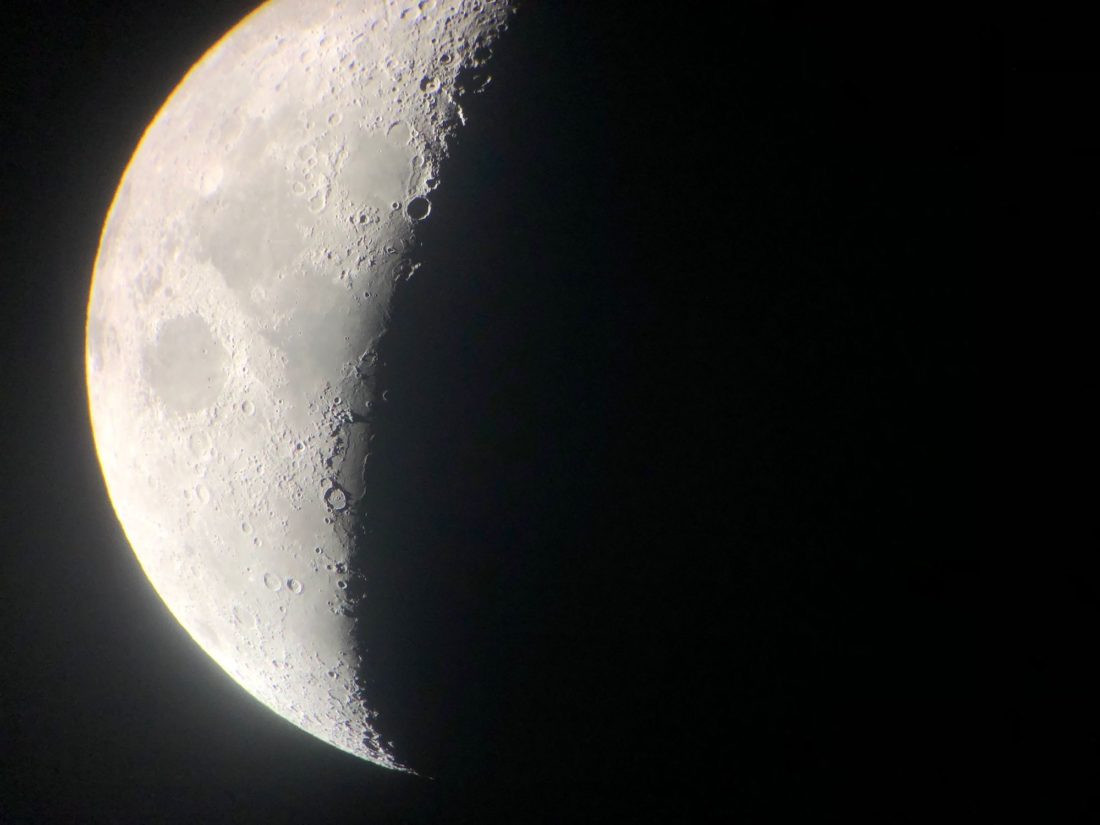
A lunar eclipse from a Stargazing on the Sea experience with David Brown.
Georgia
Vogel State Park, one of the Peach State’s oldest parks, also happens to be one of its best places for stargazing. Sitting at the base of Blood Mountain in the Chattahoochee National Forest, the park’s Lake Trahlyta provides a dramatic backdrop, turning black at night and reflecting the starry skies. The park has cottages, and tent, trailer, and RV campsites for overnight stays.
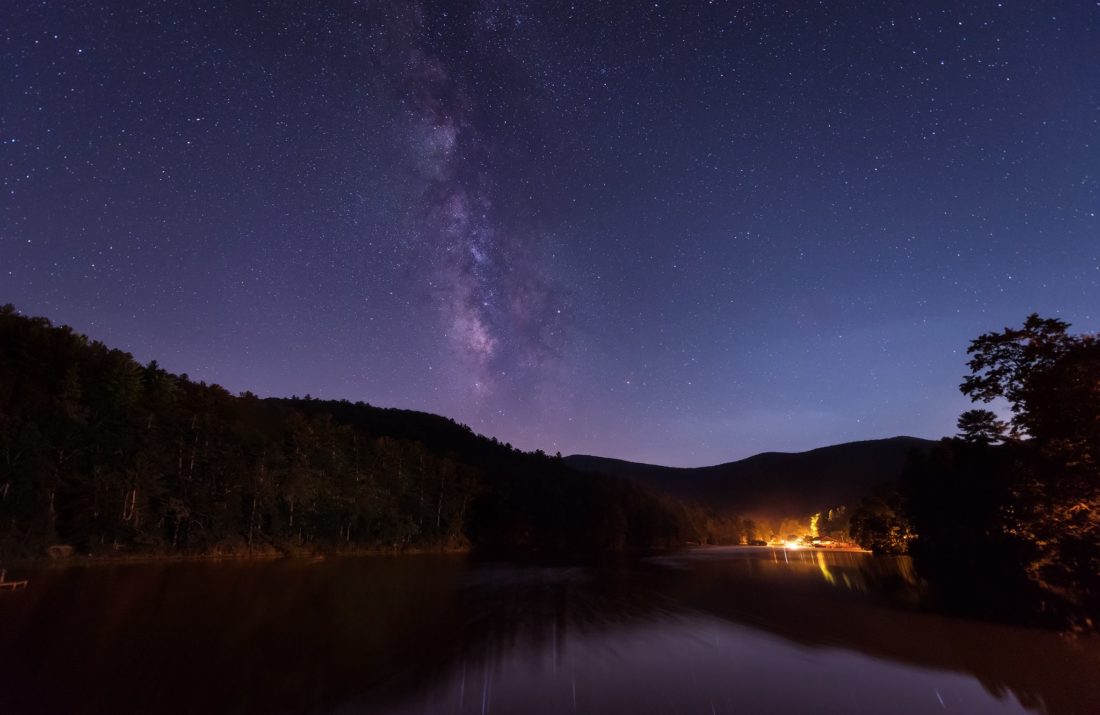
Vogel State Park in Georgia.
Not far from Vogel, Brasstown Bald is the highest point in Georgia, standing at 4,784 feet above sea level. The cloud-level observation tower provides incredible 360-degree views across four states (Georgia, Tennessee, North Carolina, and South Carolina), and the visitor center turns off its lights at night for an even darker sky experience. You may even spot the Milky Way from here.
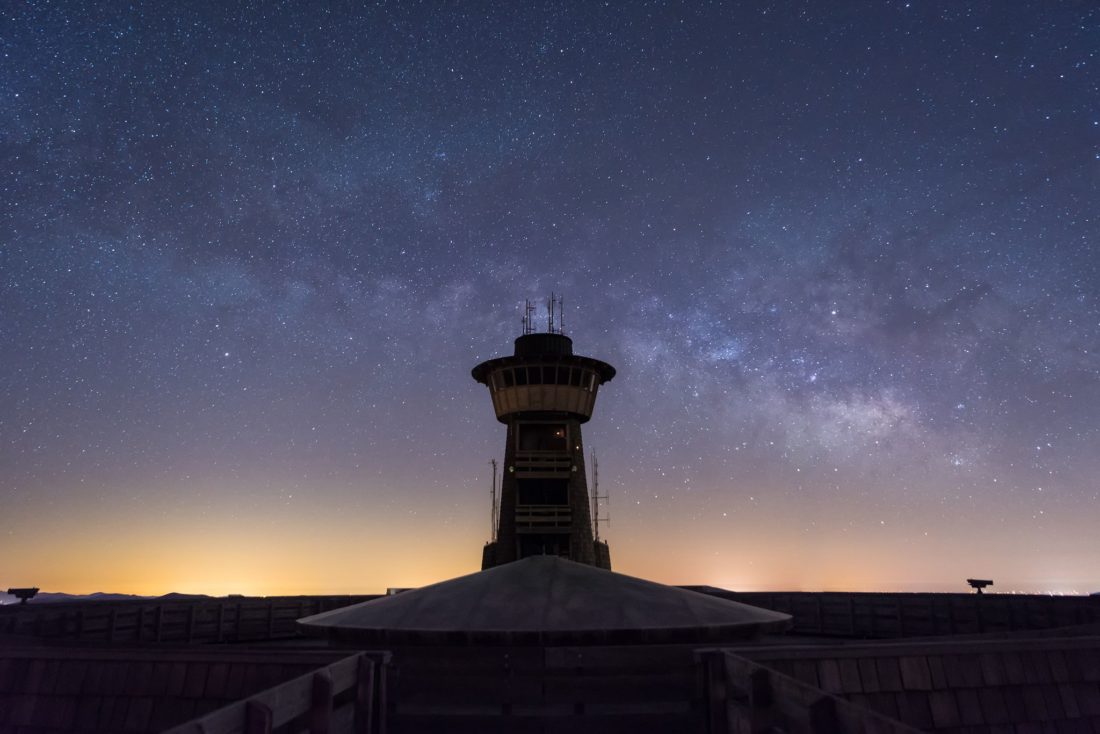
The observation tower at Brasstown Bald.
North Carolina
The Southeast’s first International Dark Sky Association–certified Dark Sky Park is Mayland Earth to Sky Park in Burnsville, about an hour northeast of Asheville. The park offers twenty-four-hour access to the parking area for stargazing, plus eight telescope viewing areas. For an expert’s insight, visit the Bare Dark Sky Observatory, which houses the Sam Scope, the largest telescope in the Southeast dedicated for public use. Observatory managers guide two-hour viewings.
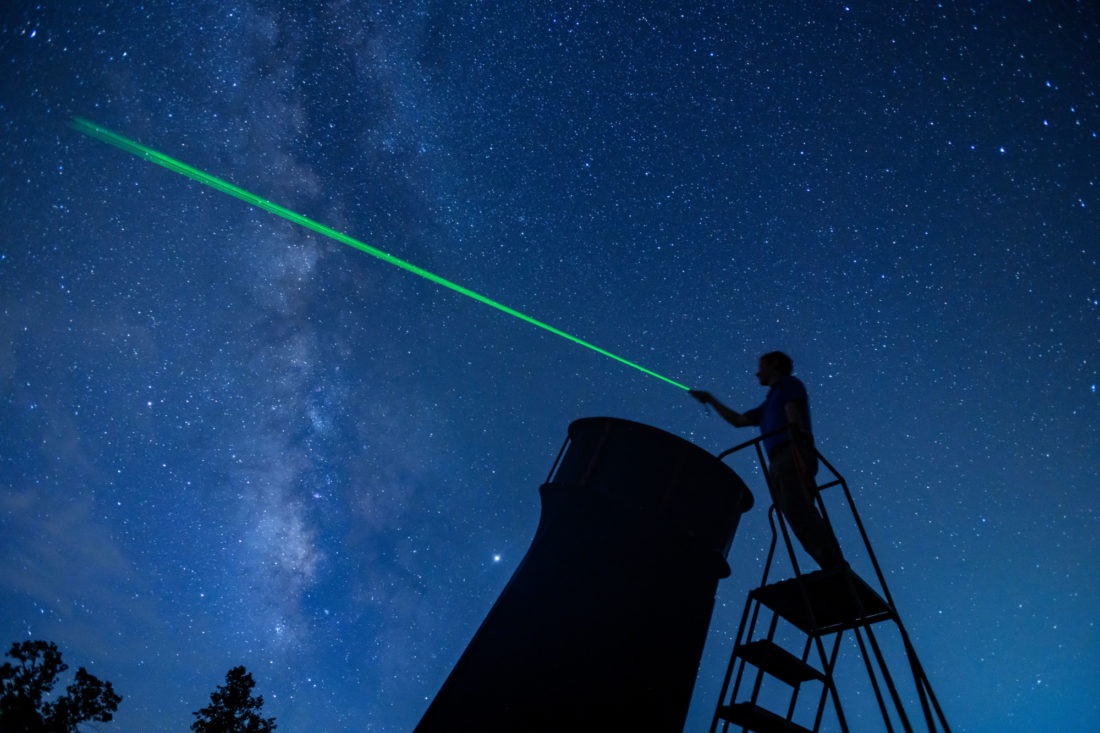
Stargazing at the Mayland Bare Dark Sky Observatory in Burnsville, North Carolina.
With a mission to reveal the unseen, the Pisgah Astronomical Research Institute (PARI) in the Pisgah National Forest, about an hour southwest of Asheville, is another terrific spot for stargazing in the state. Also a certified Dark Sky Park, the two-hundred-acre campus nestled in the Western North Carolina mountains hosts scheduled public stargazing events, and private two-hour viewings are available upon request.
Texas
Forty-five miles south of Houston in Needville stands Brazos Bend State Park and the George Observatory, a collaboration between the park and the Houston Museum of Natural Science. On the weekends, Saturday Stargazing at the George Observatory invites visitors to bring their own telescopes and binoculars. Astronomers are on hand to provide viewing tips and give laser tours of the night sky. Stay overnight for more stargazing; park accommodations include cabins, screened shelters, and campsites.
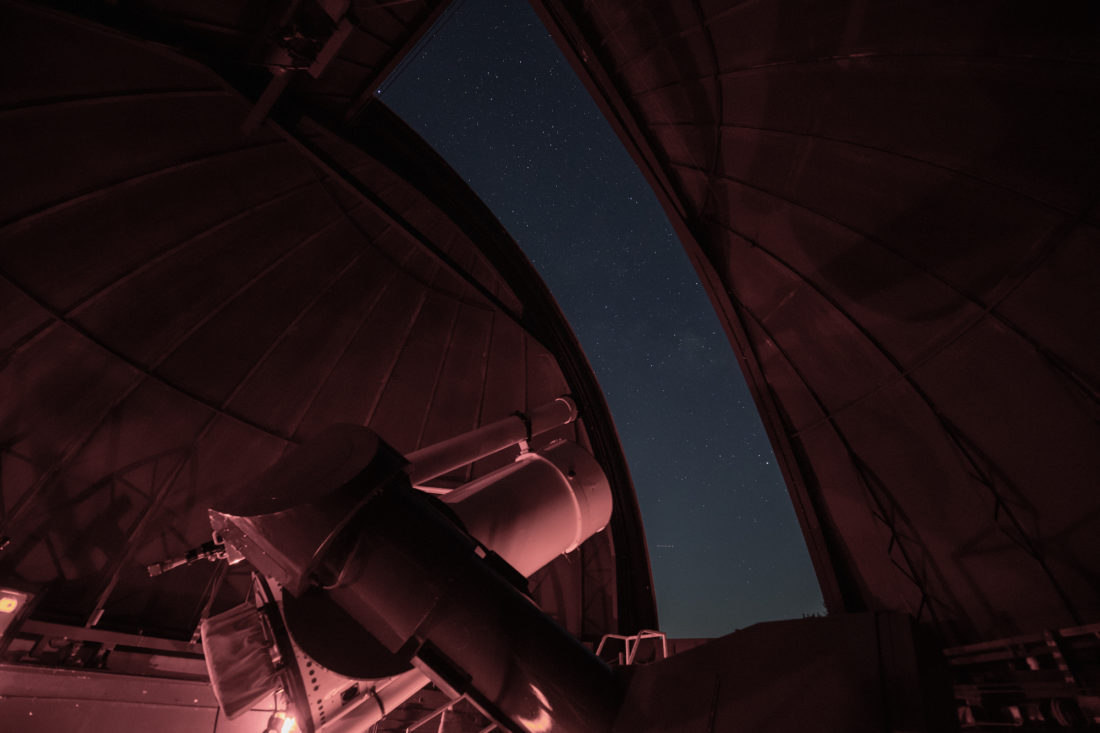
Inside the George Observatory in Needville, Texas.
The Hudson Amphitheater sets an outdoor stage for night sky talks and Star Parties at the Rafes Urban Astronomy Center, near the Denton Municipal Airport. Four telescope huts, each with four telescopes, and astronomy laboratories sit on the center’s grounds; roughly three thousand students use the facility annually. The public can join in the starry fun on the first and third Saturdays of the month during the center’s Star Parties. Would-be astronomers are invited to come and learn about the night sky from dedicated staff and astronomy students.
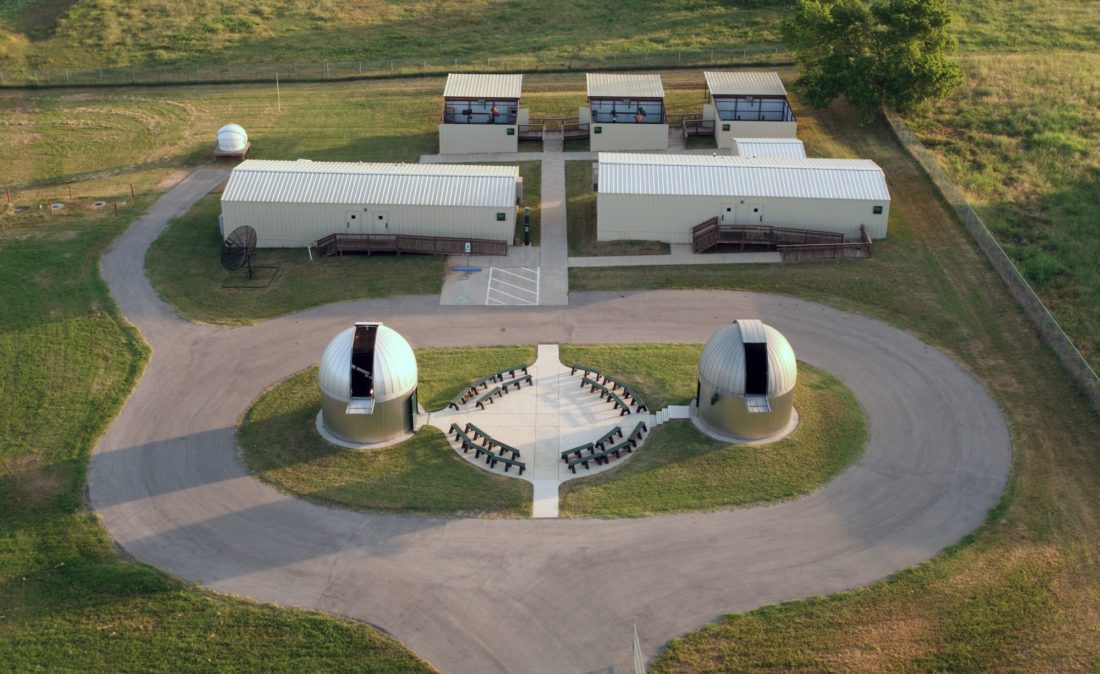
The Hudson Amphitheater at the Rafes Urban Astronomy Center.

